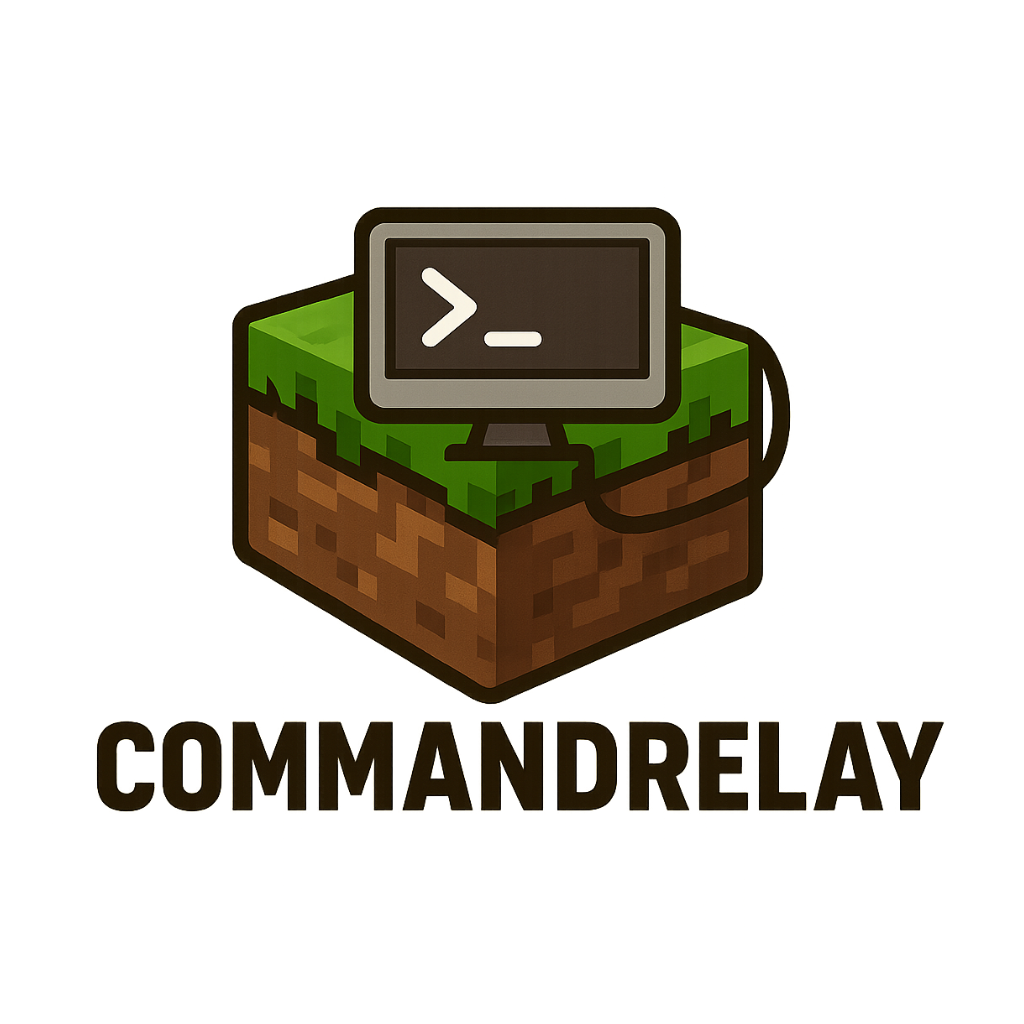
CommandRelay - v1 v1.0.0
A secure way to connect your application to the server 1.0.0
CommandRelay Plugin
Version: 1.0
Author: vcesar
Description:
CommandRelayPlugin allows external TCP requests to execute commands on a Minecraft server, using a secret token and a whitelist of allowed IPs for enhanced security.
Main Features:
- Built-in TCP server to receive commands.
- Secret token validation for each command.
- IP whitelist to control access.
- Commands executed on Bukkit’s main thread.
- Error logging to errors.log.
- Reloadable configuration at runtime (reloadPluginConfig).
- Debug mode for detailed command tracking.
- Thread pool to handle multiple concurrent clients.
Security:
1. Only allowed IPs can connect.
2. Only commands listed in allowed_commands are executed.
3. Secret token required for every request.
Typical Configuration (config.yml):
port: 8193
secret_key: "my_secret_token"
allowed_ips:
- "127.0.0.1"
debug: false
allowed_commands:
- say
- give
messages:
activated: "Plugin activated"
invalid_token: "ERROR: invalid token"
command_executed: "Command executed successfully"
Plugin Command Usage:
/cr
Permissions:
commandrelay.admin (default op)
EXAMPLE OF CLIENT SENDER
// SENDER MODULE
const net = require("net"); // Node.js module for TCP connections
// CONFIGURATION
const PLUGIN_HOST = "localhost"; // IP address of the server running the Java plugin
const PLUGIN_PORT = 25579; // Port defined in the plugin configuration
const TOKEN = "123"; // Secret token configured in config.yml
/**
* Sends a command to the CommandRelayPlugin via TCP.
* @param {string} command - The command string to be executed on the server.
* @returns {Promise} - Resolves with the response from the plugin.
*/
function sendCommandToPlugin(command) {
return new Promise((resolve, reject) => {
// Create a TCP connection to the plugin server
const client = net.createConnection(
{ host: PLUGIN_HOST, port: PLUGIN_PORT },
() => {
console.log("✅ Connected to TCP plugin server");
// Send the token and command separated by ':', followed by a newline
client.write(`${TOKEN}:${command}\n`);
}
);
let dataBuffer = ""; // Buffer to collect response data
// Collect data sent back by the plugin
client.on("data", (data) => {
dataBuffer += data.toString();
});
// When the server ends the connection, resolve the promise with the response
client.on("end", () => {
console.log("⬅ Response from plugin:", dataBuffer.trim());
resolve(dataBuffer.trim());
});
// Handle any connection errors
client.on("error", (err) => {
console.error("❌ Error connecting to plugin:", err.message);
reject(err);
});
});
}
// EXAMPLE USAGE
(async () => {
try {
// Send a command to the plugin
const response = await sendCommandToPlugin("say Hello from Node.js");
console.log("Final response:", response);
} catch (err) {
console.error("Connection failed:", err);
}
})();
